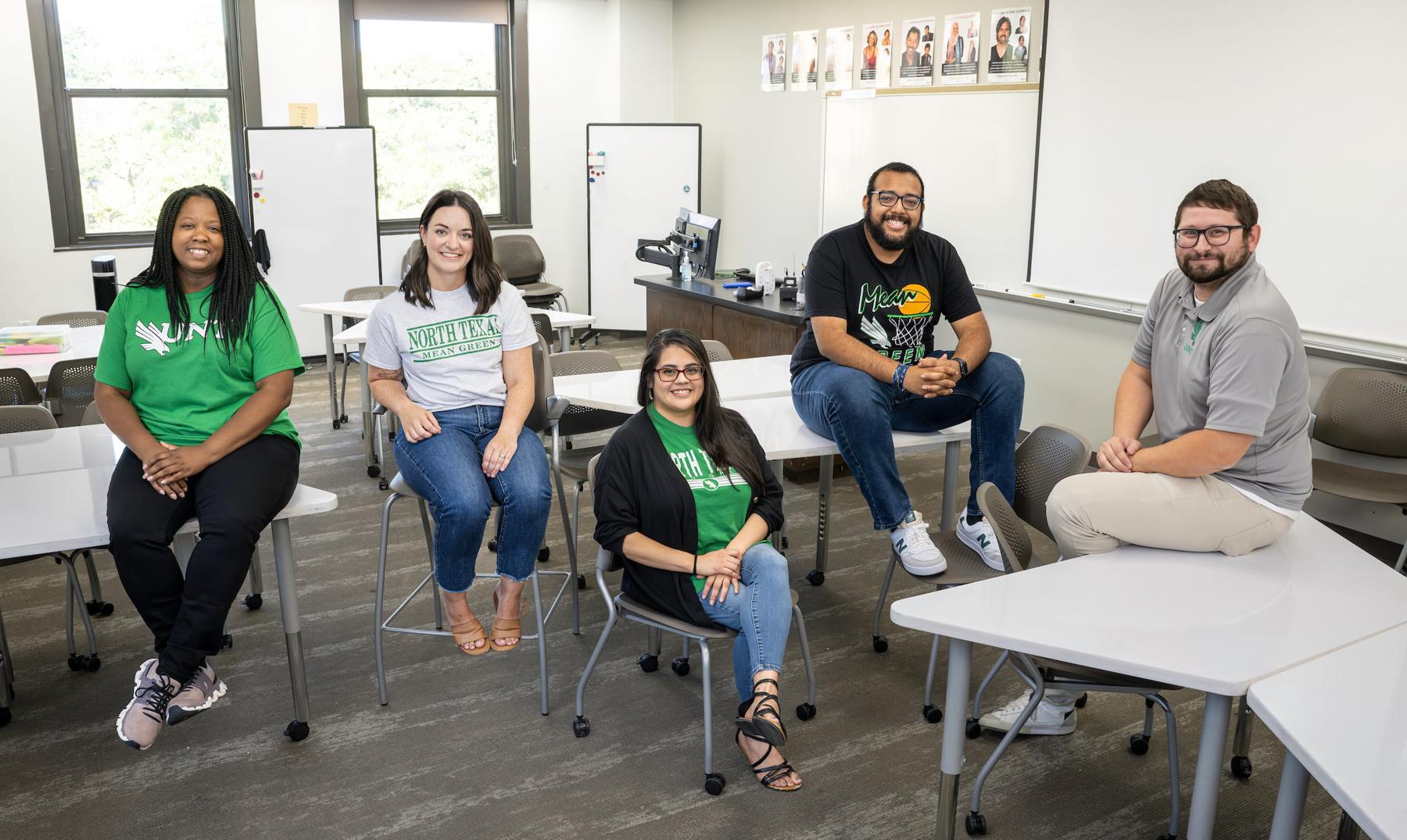
DENTON (UNT), Texas —The University of North Texas is addressing pandemic-related math learning challenges with the addition of two recently established support classes.
“We’re working to make sure our students don’t fall further behind,” said Rudi Thompson, assistant vice president of digital strategy and innovation and co-director of Teach North Texas. “We need to offer interventions like these courses to ensure our students stay on track.”
MATH 340 and 350 classes are designed to support students who did not pass the math portions of the Texas Success Initiative (TSI) test, a legislatively mandated program. These classes were introduced in response to learning loss cause by the COVID-19 pandemic. The pandemic led to disruptions like school closures and remote learning, which created gaps in essential academic skills such as math and reading.
“At UNT, we’re dedicated to student development and bridging the gap for those who got lost during COVID,” Thompson said. “I believe we are leading the way in addressing these challenges.”
Students are placed in classes based on their TSI scores. Those with slightly lower scores are assigned to MATH 340. Upon completing MATH 340 or 350, students can enroll in their first college credit math course, along with a co-requisite course designed to support them in their college math course.
The 2024 academic year was the first time the classes were taught in part by members of the Teach North Texas program. The program’s five lecturers, known as the TSI Five, are all UNT alumni. They’re also graduates of the Teach North Texas program, which enables College of Science students and information science students to earn certification as math and science teachers.
“I thought it was exciting,” said lecturer Caitlin Kirk about being approached for the program. “Before this, I was following where post-COVID learning gaps happened for K-12 students in the district I worked in and adjusting the curriculum instruction to fill those gaps. This opportunity allows me to address the gaps from the other side.”
Instructors use a different approach than traditional classrooms. Instead of taking notes at their desks, students work on problems at whiteboards throughout the class. They are placed in random groups of three each session. While the groups work, lecturers assign progressively more complex problems, asking questions that guide students toward their own solutions. The key is that students visualize and understand the process behind their answers and discover their own method.
“Helping students demonstrate their thought process allows us to identify misunderstandings and reinforce their learning,” Kirk said. “Most students enter the class lacking confidence in math, but by the end, they feel capable of solving problems and knowing when to seek help.”
Near the end of class, students spend 10 minutes discussing what they’ve learned and taking notes for their reference. They also are assigned homework and required to attend tutoring sessions in the Early Math Support Lab which is run by the UNT Math Department and UNT’s Office of Student Success and is open to all students.
Instructors say they’ve seen their students improve in real time.
“Many students memorize math rules without understanding the underlying concepts,” said Anthony Hufford, a lecturer during the 2024 academic year and now a master teacher for Teach North Texas. “We aim to help them grasp the reasoning behind the equations. Reflections from the students themselves show that this approach boosts their confidence, which is crucial for their success in college-level math.”